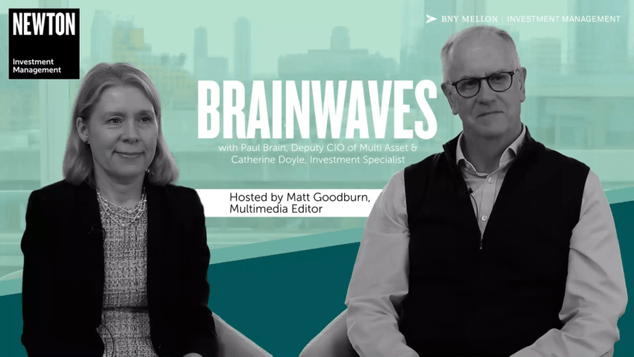We discuss how the pandemic has distorted standard valuation measures.
Key points
- The current pandemic distorts standard valuation measures.
- This challenges many investment processes which are reliant on short-term consensus estimates as proxies for long-term forecasts.
- Investors need to formulate their own views of the future based on a rigorous and holistic investment process.
Oscar Wilde’s comedy Lady Windermere’s Fan set in 1890s London is peppered with witty dialogue, including the following exchange between two gentlemen. Mr Cecil Graham asks “What is a cynic?” Lord Darlington replies “A man who knows the price of everything and the value of nothing.”
In contrast to Lord Darlington’s definition of a cynic, the stock market knows ‘the price of everything and the value of most things’. By this I mean that the stock market is, in most instances, highly efficient at pricing all the available information. Our job, as investors, is to identify the exceptions – the mispriced securities – where we believe that the market does not fully appreciate the value of the stock.
To value a company you need to look at it holistically. At Newton, we believe that the collective wisdom of the team is greater than the insights of any individual. We have a thematic framework which describes the cross-sector tailwinds and headwinds that we believe are material over the medium to long term. We have a team which considers environmental, social and governance (ESG) perspectives, and our sector specialists have a deep understanding of company fundamentals. My team focuses on valuation and accounting issues, and provides an unbiased and independent perspective on equity recommendations.
The current pandemic distorts standard valuation measures. Off-the shelf measures such as price-to-earnings ratios are, for many companies, distorted by the impact of Covid-19. This is a challenge for many investment processes reliant on short-term consensus estimates as proxies for long-term forecasts. By contrast, our analysts are able to build proprietary models and look further out into the future. Covid-19 is a stress test which will result in discontinuities, meaning that for many companies the future will look very different from the past. Modelling discontinuities is a challenge for many passive investment strategies, which often assume that the future looks like the past.
To value a company during a pandemic, we ask ourselves three additional questions:
1 Will the company survive the crisis?
The most pressing concern is to assess the risk of financial distress which relies on timely cash-flow disclosure. There have been quite a few examples of good disclosure. For example, one company published monthly cash burn rates which allowed investors to assess how long the company could survive, based on their own judgement of the duration of restrictions. Working-capital analysis has been vital for companies that experienced large cash outflows. A challenge on this front has been the limited transparency of factoring arrangements such as reverse factoring (where a bank or lender pays a supplier’s invoice early on the customer’s behalf).
2 What has the impact of Covid-19 been on profits?
We need to understand both the positive and negative impacts of Covid-19 so we can forecast profits in a post-Covid-19 world. For revenues, we look for estimates both for positive changes (for example, channel shifts to online sales) and negative changes (for example, event cancellations). Likewise, for costs, we look for estimates for positive changes (for example, government support) and negative changes (for example, the cost of additional personal protective equipment for staff).
3 How will the ‘new normal’ compare to the ‘old normal’?
Many commentators are referring to Covid-19 as the ‘great reset’, meaning that the ‘new normal’ may be materially different from the ‘old normal’. For example, we have already seen an acceleration of the move from in-store purchases to online deliveries. There also seems to be a societal shift towards more sustainable products and companies. Segmental disclosure and information about expenses help our long-term analyses.
A crisis is not only a challenge, but also an opportunity to demonstrate resilience and adaptability. This is true not only for companies, but also for investment processes. During a pandemic, we believe that investors cannot rely on off-the-shelf valuation measures, but instead need to use their own proprietary views of the future based on a rigorous and holistic investment process.
This is a financial promotion. These opinions should not be construed as investment or other advice and are subject to change. This material is for information purposes only. This material is for professional investors only. Any reference to a specific security, country or sector should not be construed as a recommendation to buy or sell investments in those securities, countries or sectors. Please note that holdings and positioning are subject to change without notice.
Important information
This material is for Australian wholesale clients only and is not intended for distribution to, nor should it be relied upon by, retail clients. This information has not been prepared to take into account the investment objectives, financial objectives or particular needs of any particular person. Before making an investment decision you should carefully consider, with or without the assistance of a financial adviser, whether such an investment strategy is appropriate in light of your particular investment needs, objectives and financial circumstances.
Newton Investment Management Limited is exempt from the requirement to hold an Australian financial services licence in respect of the financial services it provides to wholesale clients in Australia and is authorised and regulated by the Financial Conduct Authority of the UK under UK laws, which differ from Australian laws.
Newton Investment Management Limited (Newton) is authorised and regulated in the UK by the Financial Conduct Authority (FCA), 12 Endeavour Square, London, E20 1JN. Newton is providing financial services to wholesale clients in Australia in reliance on ASIC Corporations (Repeal and Transitional) Instrument 2016/396, a copy of which is on the website of the Australian Securities and Investments Commission, www.asic.gov.au. The instrument exempts entities that are authorised and regulated in the UK by the FCA, such as Newton, from the need to hold an Australian financial services license under the Corporations Act 2001 for certain financial services provided to Australian wholesale clients on certain conditions. Financial services provided by Newton are regulated by the FCA under the laws and regulatory requirements of the United Kingdom, which are different to the laws applying in Australia.






Comments